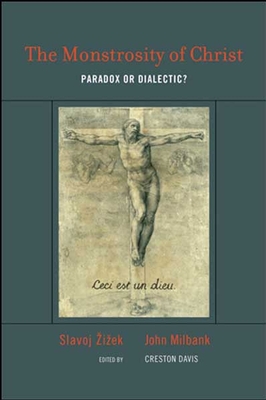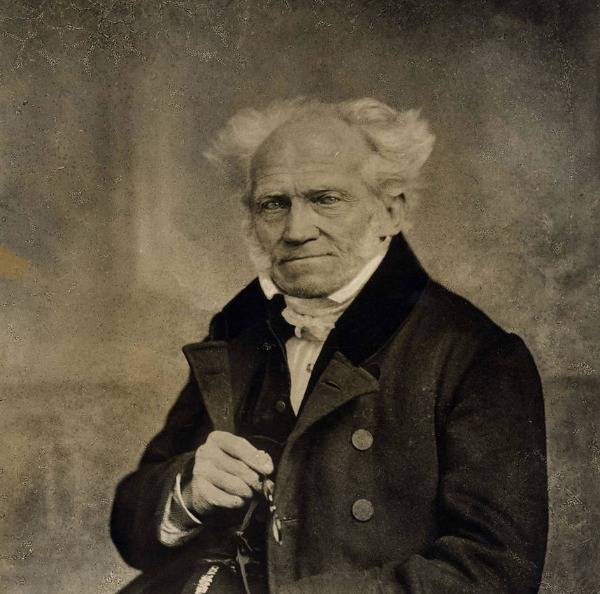 The old dictum "the enemy of my enemy is my friend" comes spectacularly unstuck in this odd little theological interchange. In one corner we have Slavoj Žižek, Marxist militant with a penchant for jokes and film references, and in the other, John Milbank, Christian theologian and Professor in Religion, Politics and Ethics at the University of Nottingham. What on earth can they have in common? Well, it turns out the wisecracking Slovene and the bearded theologian are united in their abhorrence of contemporary life. Both share a particular dislike for capitalism and the hypocrisies of democratic governments; both see theology as a resource for thinking differently about the world. In that sense, then, their shared project is a political one. As the book's editor, Creston Davis, puts it in the Introduction: "How can the theological and the material unite to fund resistance to capitalist nihilism?" Rather more amusingly, Davis also describes the encounter as "the intellectual equivalent of Ultimate Fighting, because both partners in this debate are defining the terms of the very meaning of Christianity, the death of Christ, the Trinity and the Church." No groin attacks are thus allowed, but for the rest it's "no holds barred". If only it were this exciting.
The old dictum "the enemy of my enemy is my friend" comes spectacularly unstuck in this odd little theological interchange. In one corner we have Slavoj Žižek, Marxist militant with a penchant for jokes and film references, and in the other, John Milbank, Christian theologian and Professor in Religion, Politics and Ethics at the University of Nottingham. What on earth can they have in common? Well, it turns out the wisecracking Slovene and the bearded theologian are united in their abhorrence of contemporary life. Both share a particular dislike for capitalism and the hypocrisies of democratic governments; both see theology as a resource for thinking differently about the world. In that sense, then, their shared project is a political one. As the book's editor, Creston Davis, puts it in the Introduction: "How can the theological and the material unite to fund resistance to capitalist nihilism?" Rather more amusingly, Davis also describes the encounter as "the intellectual equivalent of Ultimate Fighting, because both partners in this debate are defining the terms of the very meaning of Christianity, the death of Christ, the Trinity and the Church." No groin attacks are thus allowed, but for the rest it's "no holds barred". If only it were this exciting.
As so often with exegetical matters, cracks quickly start to appear. It is not at all clear what the terms of the debate are: is it that Žižek and Milbank agree on what's wrong with the world but not about how to fix it, or is there a more fundamental disagreement at stake, such that the debate is conducted at two stubbornly disparate levels? In the end, it looks very much like the latter, with Žižek reiterating his allegiance to Hegel, Lacan and Kant (what he terms "the Protestant side") while Milbank doggedly defends Aquinas, Meister Eckhart and the "orthodox" Catholicism that he believes provides the only answer to the travesties of life under contemporary capitalism. The one figure that unites them is, curiously, G K Chesterton, crime novelist and anomalous Catholic, but this appears to be mainly because he says a lot of things that can be read in interestingly different ways (if this dialogue achieves anything, it is to remind the reader that Chesterton is worth rereading).
What is the point of this debate? Davis argues that the "theological ... has returned with a vengeance" and that this is largely due to the collapse of communism and the rise of capitalism. The new world order has disappointed with its consumerism, and a new desire to "touch the infinite beyond the malaise of capitalist pretense and sheer boredom" has arisen. But has it? The stakes of the debate, although seemingly grand - the interpretation of Christ, the meaning of the Church - seem remarkably distant compared to more pressing matters such as global warming and police violence. Žižek is extremely critical of today's "spiritual" religions, the unrigorous sort that seems to suit contemporary capitalism (think evil CEOs practising Zen Buddhism) and both parties are very angry, as you might expect, with what Žižek calls the "big bestseller 'troika' of Sam Harris, Richard Dawkins, Daniel Dennett". It is true that the recent atheism debate does often fall into the trap of becoming a political attack on Islam and "fundamentalism", but it is not clear that Žižek or Milbank really provide a clear new framework for understanding (let alone escaping) religion today. Milbank proposes a return to notions of hierarchy based on balance and order, what he describes as a paradoxical "postmedieval fuller realisation of Christianity". It doesn't sound like a lot of fun, frankly. Žižek's "materialist ethics", on the other hand, has a certain perverse charm. In his conclusion to the book, he states: "I would love to be ... an ethical monster without empathy, doing what is to be done in a weird coincidence of blind spontaneity and reflexive distance, helping others while avoiding their disgusting proximity." This is where his "dialectical" reading of Christianity leads him, whilst Milbank's "paradoxical" faith frequently ends up sounding merely reactionary, harking back to an age where people knew their place in the grand scheme of things. Milbank's "radical orthodoxy" movement and its links to "Red Toryism" are a worrying development for the future of politics - in a letter to the Guardian last year, Milbank promoted his odd fusion of conservatism and social order by asking "is it really so obvious that permitting children to be born without fathers is progressive, or even liberal and feminist?" The Monstrosity of Christ is both about and contains a dizzying array of paradoxes and dialectical manoeuvres. Take, for example, this final idea from Žižek: "theologians are the only true materialists - and, I might add, this is why materialists are the only true believers." Christ might be "monstrous", but the arguments in here are much worse.
The Monstrosity of Christ is published by MIT Press

